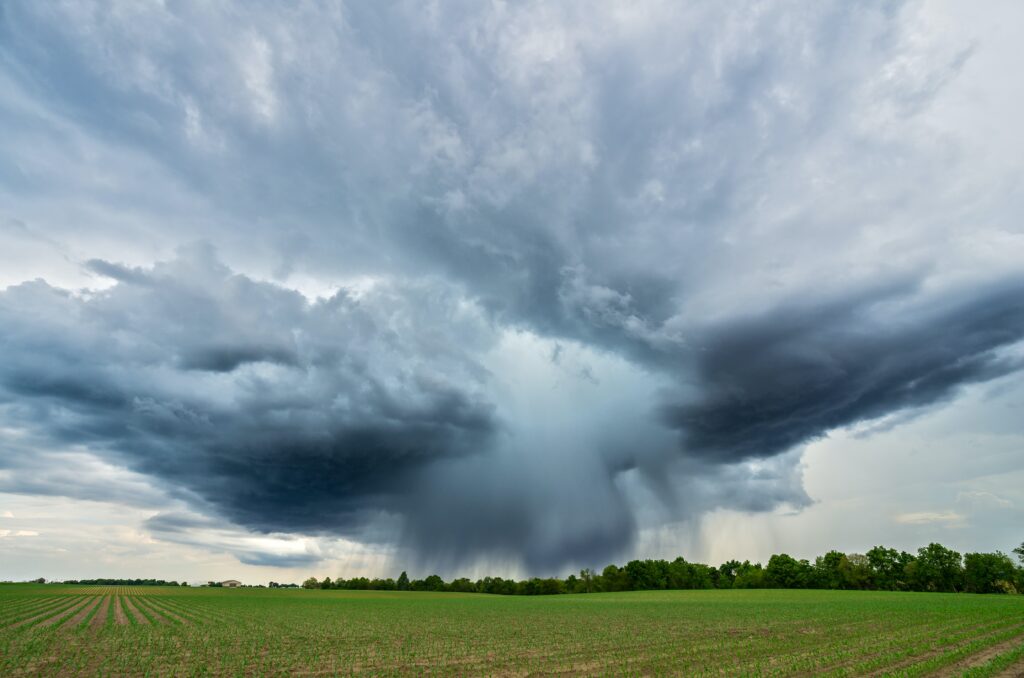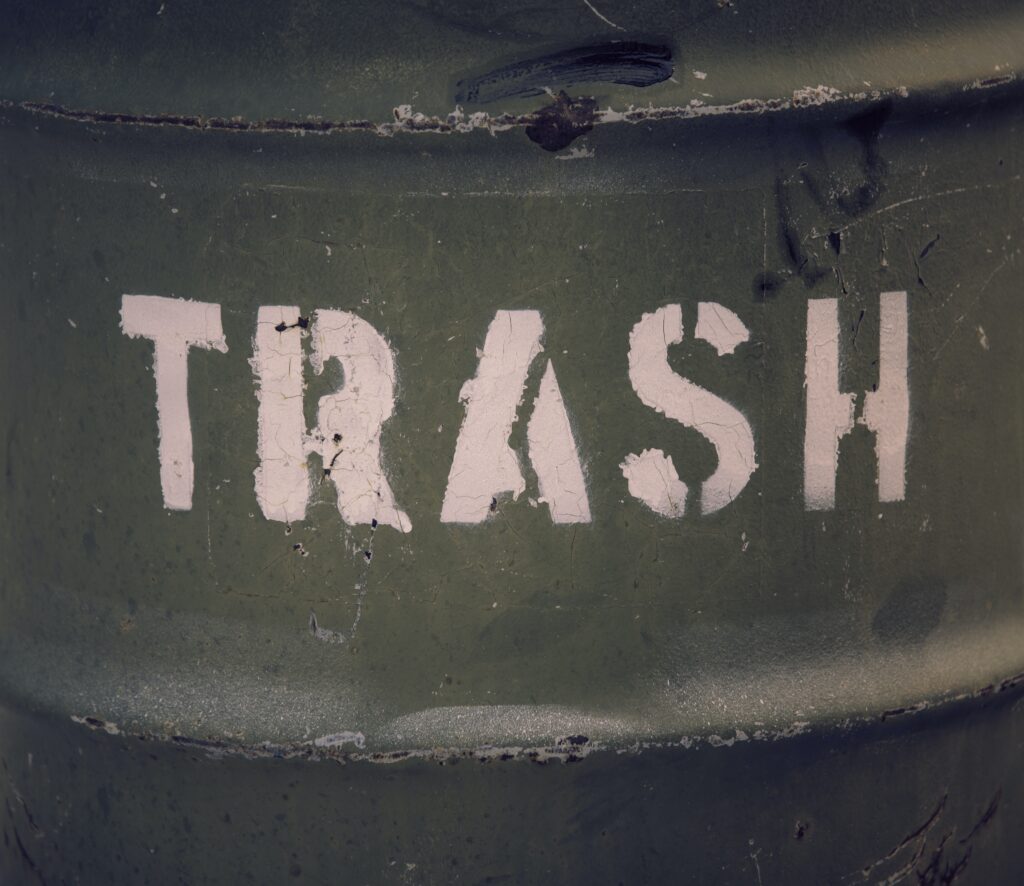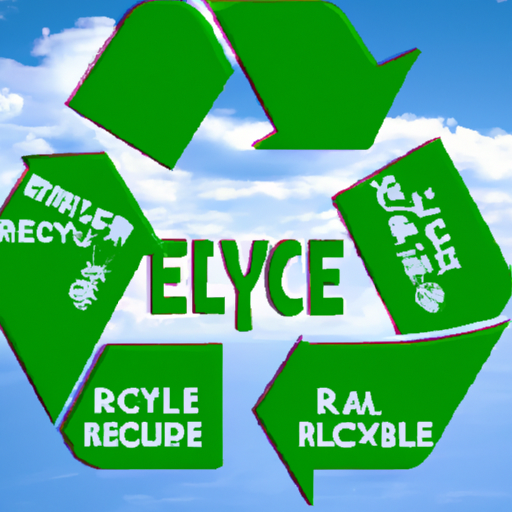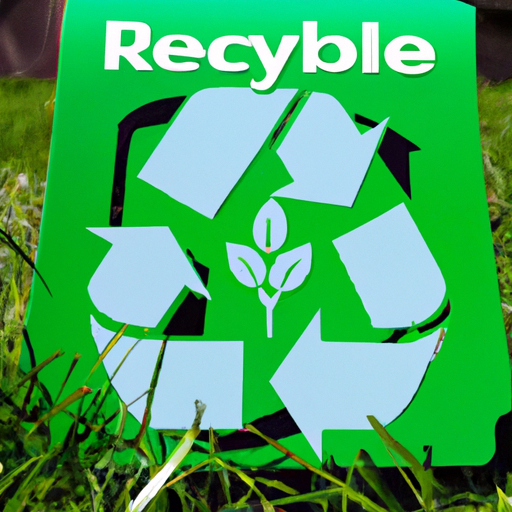Why Is Recycling Important: Introduction
In a world faced with increasing environmental concerns, it has become crucial to address the significance of recycling in our daily lives. “Why Is Recycling Important?” is a product that aims to shed light on the reasons behind the pressing need for recycling. By exploring the various benefits of recycling, from conserving natural resources to reducing pollution, this product equips you with the knowledge and understanding to make informed choices that can have a positive impact on our planet. So, let’s embark on a journey to unravel the importance of recycling and discover how each of us can contribute to creating a more sustainable future.
Reduces environmental impact
Conserves resources
Recycling plays a crucial role in conserving resources. By recycling materials such as paper, plastic, glass, and metal, we can reduce the demand for virgin materials. This means fewer trees need to be cut down, less oil and natural gas needs to be extracted, and fewer minerals need to be mined. By conserving these resources, we are helping to preserve forests, ecosystems, and natural habitats.
Reduces pollution
One of the major benefits of recycling is that it helps to reduce pollution. When materials are recycled, they go through a process that often requires less energy and produces fewer emissions compared to the production of new materials. For example, recycling paper reduces the amount of air pollution caused by incineration of waste, while recycling plastic reduces the amount of plastic waste that ends up in our oceans, causing marine pollution. By reducing pollution, recycling helps to improve air and water quality, making our environment healthier and safer for both humans and wildlife.
Saves energy
Recycling not only conserves resources and reduces pollution but also saves energy. The production of new materials requires a significant amount of energy, often derived from fossil fuels. However, when we recycle materials, we can significantly decrease the energy required in the manufacturing process. For example, recycling aluminum cans requires 95% less energy compared to producing new ones from raw materials. Additionally, recycling helps to decrease energy consumption in waste management, such as landfill operations and incinerators, further reducing our overall energy footprint.
Why Is Recycling Important: Mitigates climate change
Reduces greenhouse gas emissions
Recycling plays a vital role in mitigating climate change by reducing greenhouse gas emissions. The production of new materials often results in the release of greenhouse gases, such as carbon dioxide and methane, contributing to global warming. However, when we recycle materials, we reduce the need for raw material extraction and decrease the energy-intensive processes associated with manufacturing new products. This, in turn, leads to lower greenhouse gas emissions, helping to combat climate change and limit its impacts.
Preserves natural habitats
Another way recycling helps to mitigate climate change is by preserving natural habitats. As mentioned earlier, by conserving resources through recycling, we reduce the need for extracting raw materials. This helps to prevent habitat destruction caused by mining and logging activities, preserving the homes of many plant and animal species. By protecting these habitats, we maintain biodiversity and ensure the long-term sustainability of our ecosystems.
Helps combat global warming
In addition to reducing greenhouse gas emissions, recycling also directly helps combat global warming. Recycling paper, for example, can save trees, which act as natural carbon sinks by absorbing carbon dioxide from the atmosphere. By preserving forests through recycling, we can retain these vital carbon sinks and reduce the concentration of greenhouse gases in the atmosphere. Furthermore, by reducing the reliance on energy-intensive processes associated with the production of new materials, recycling helps to minimize the carbon footprint of various industries, contributing to global efforts in combating climate change.

Check Out Our Top Eco Friendly Product Picks On Amazon Here
Why Is Recycling Important: Promotes sustainability
Preserves natural resources
Recycling is a key element in promoting sustainability as it preserves natural resources. By recycling materials, we extend their lifecycle, reducing the need for extracting new resources. For instance, recycling plastic bottles not only helps reduce the demand for virgin plastic but also saves the energy needed to produce new bottles. Through recycling, we can ensure that valuable resources are used efficiently and sustainably, minimizing our impact on the environment.
Supports a circular economy
A circular economy is an economic system that aims to minimize waste, maximize resource utilization, and eliminate the concept of “end-of-life” for products. Recycling is a foundational component of a circular economy, as it enables the recovery and reuse of materials. By recycling materials, we can divert them from landfills, where they would otherwise contribute to pollution and resource depletion. Instead, these materials can be transformed into new products, closing the loop and ensuring a more sustainable approach to resource management.
Minimizes landfill usage
Landfills are not only unsightly but also pose significant environmental and health risks. By recycling, we can minimize the amount of waste sent to landfills, helping to alleviate the strain on these disposal sites. When materials are diverted for recycling, they are given a new life, reducing the overall volume of waste that ends up in landfills. This, in turn, helps to decrease the environmental impact of landfills, such as the release of harmful chemicals and the production of greenhouse gases.
Protects wildlife
Prevents habitat destruction
One of the important ways recycling protects wildlife is by preventing habitat destruction. Extracting raw materials for manufacturing often involves clearing land, destroying natural habitats where many species reside. By conserving resources through recycling, we reduce the demand for such extraction and help protect the homes and habitats of wildlife. By preserving their natural habitats, we ensure the survival and well-being of countless species that depend on these ecosystems.
Avoids wildlife entanglement
Improperly disposed of waste, such as plastic bags and fishing nets, can pose a significant threat to wildlife. Animals can become entangled in these items, leading to injury or even death. Recycling helps to mitigate this threat by reducing the amount of waste that ends up in the environment. By properly recycling items like plastic bags and ensuring they don’t end up in the wild, we can minimize the risk of wildlife entanglement and protect the well-being of various species.
Reduces marine pollution
Marine pollution, particularly from plastic waste, is a growing concern worldwide. Recycling plays a vital role in reducing marine pollution as it prevents discarded items, especially plastic, from entering our oceans. Plastic waste often breaks down into smaller pieces known as microplastics, which can be ingested by marine animals, causing harm to their health and disrupting entire ecosystems. By recycling plastic, we can help minimize the amount of plastic waste that ends up in our oceans, protecting marine life and preserving the delicate balance of marine ecosystems.

Why Is Recycling Important: Saves energy
Reduces the need for raw materials extraction
The extraction of raw materials is a resource-intensive process that often requires a significant amount of energy. By recycling materials, we can reduce the demand for these raw materials and, in turn, decrease the energy required for their extraction. For example, recycling steel cans saves approximately 60% of the energy needed to produce new steel from iron ore. By recycling and reusing materials, we can significantly decrease our reliance on energy-intensive extraction processes, leading to energy savings and a reduced environmental impact.
Reduces manufacturing energy requirements
The production of new materials often involves energy-intensive processes, consuming large amounts of energy derived from fossil fuels. Recycling, on the other hand, often requires less energy compared to manufacturing new products from raw materials. For instance, recycling aluminum cans requires 95% less energy compared to producing new ones from bauxite ore. By choosing recycling over the production of new materials, we can conserve energy and reduce the associated greenhouse gas emissions, contributing to a more sustainable and energy-efficient future.
Decreases energy consumption in waste management
Waste management processes, such as landfill operations and incineration, require energy to handle and dispose of waste. By recycling materials, we can reduce the amount of waste sent to landfills and incinerators, consequently decreasing the energy consumed in these waste management processes. Recycling not only conserves resources but also minimizes the energy requirements of waste management, allowing us to use our energy more efficiently and sustainably.
Conserves resources
Decreases demand for virgin materials
One of the fundamental benefits of recycling is that it decreases the demand for virgin materials. By recycling and reusing materials, we can reduce our reliance on extracting new resources from the Earth. For example, recycling one ton of paper can save around 17 trees and more than 3 cubic yards of landfill space. By decreasing the demand for virgin materials, we can preserve forests and ecosystems, minimize habitat destruction, and promote a more sustainable use of our planet’s resources.
Preserves forests and ecosystems
Forests are crucial for our planet’s health and well-being, playing a significant role in regulating the climate, conserving biodiversity, and providing essential resources. By recycling materials like paper and wood, we can help preserve forests and ecosystems. When we recycle paper, we reduce the need for cutting down trees, preserving these valuable natural habitats. By conserving forests and ecosystems through recycling, we ensure their longevity and the vital services they provide to our planet.
Lowers water consumption
Water is a precious resource, and its preservation is essential for the well-being of both humans and the environment. Recycling helps to lower water consumption by reducing the need for extracting and processing raw materials. For instance, recycling aluminum cans uses about 95% less water compared to producing new ones from bauxite ore. By recycling materials and minimizing the demand for virgin resources, we can reduce our water footprint and promote responsible water stewardship, ensuring a more sustainable future for all.

Reduces pollution
Prevents air pollution from incineration
Incineration of waste is a common method of waste disposal, but it can contribute to air pollution. When waste materials are burned, harmful emissions, including greenhouse gases and toxic pollutants, are released into the atmosphere. By recycling materials, we can reduce the amount of waste that needs to be incinerated, consequently reducing air pollution. Recycling helps to divert waste from incineration and helps us move towards cleaner, more sustainable waste management practices.
Avoids water contamination from landfill leachate
Landfills are another common method of waste disposal, but they can lead to water contamination through leachate. Leachate is a toxic liquid that forms as waste decomposes in landfills, and if not properly contained, it can contaminate nearby water sources. By recycling materials and diverting waste from landfills, we can minimize the potential for leachate formation and subsequent water contamination. Recycling reduces the reliance on landfills, protecting our water resources and promoting a cleaner environment.
Minimizes soil pollution
Improper waste disposal and the use of non-recyclable materials can contribute to soil pollution. When waste is buried in landfills, it can contaminate the surrounding soil, affecting soil quality and potentially harming plant and animal life. Recycling helps to minimize soil pollution by diverting waste from landfills, preventing the release of harmful substances into the soil. By choosing recycling over landfilling, we can protect the integrity of our soils and promote a more sustainable and pollution-free environment.
Sustainable production
Encourages the use of recycled materials
Recycling plays a crucial role in sustainable production by encouraging the use of recycled materials. By incorporating recycled materials into the manufacturing process, we can reduce the dependence on virgin resources and minimize the environmental impact of production. For example, using recycled plastic in the production of new products requires less energy and water compared to using virgin plastic. By embracing recycled materials, we can move towards a more sustainable approach to production, ensuring the long-term availability of resources and reducing waste generation.
Requires less energy-intensive processing
The manufacturing of new materials often involves energy-intensive processes that contribute to greenhouse gas emissions and resource depletion. On the other hand, recycling typically requires less energy compared to producing new materials from raw resources. By recycling, we can minimize the energy-intensive processing associated with manufacturing, thus reducing our environmental footprint. By opting for less energy-intensive processes, we can promote sustainable production and contribute to a more efficient use of our planet’s resources.
Promotes eco-friendly manufacturing practices
Recycling not only encourages the use of recycled materials and reduces energy-intensive processing but also promotes eco-friendly manufacturing practices. When companies choose to incorporate recycled materials into their production processes, they are actively participating in sustainable manufacturing. By utilizing recycled materials, companies can reduce their environmental impact, minimize waste generation, and contribute to a more sustainable and circular economy. Embracing eco-friendly manufacturing practices through recycling can lead to a win-win situation, both environmentally and economically.

Why Is Recycling Important: Economic benefits
Creates jobs in recycling industries
Recycling is not only beneficial for the environment but also for the economy. The recycling industry creates various job opportunities, from collection and sorting to processing and manufacturing. By supporting recycling initiatives and investing in recycling infrastructure, we can generate employment in these industries. Recycling provides a source of income for many individuals and contributes to the overall economic growth of communities. By recognizing the economic potential of recycling, we can create a sustainable economy that benefits both the environment and society.
Generates revenue from recycled materials
Recycling presents a unique opportunity to generate revenue from recycled materials. Many materials, such as paper, plastic, glass, and metal, have value and can be sold to manufacturers who use them as raw materials. By recycling and selling these materials, we can generate revenue and create a market for recycled products. This economic incentive encourages recycling and provides a tangible benefit to individuals, businesses, and communities. By tapping into the economic value of recycling, we can establish a self-sustaining system that promotes both environmental and economic well-being.
Reduces waste management costs
Waste management can be costly, especially when it involves landfilling and incineration. By recycling materials and diverting waste from these disposal methods, we can significantly reduce waste management costs. Recycling minimizes the amount of waste that needs to be handled, disposed of, and managed, resulting in cost savings for communities and municipalities. By reducing waste management costs, recycling allows resources to be allocated to other important areas, such as education, healthcare, and infrastructure development, benefiting the overall well-being of communities.
Community involvement
Fosters a sense of environmental responsibility
Recycling fosters a sense of environmental responsibility and encourages individuals to take an active role in preserving the planet. When communities engage in recycling programs, they commit to reducing waste, conserving resources, and minimizing their impact on the environment. By actively participating in recycling initiatives, individuals become more aware of their consumption habits and take steps towards more sustainable lifestyles. By fostering a sense of environmental responsibility, recycling promotes a culture of sustainability and empowers individuals to make a positive difference in their communities.
Enhances local sustainability initiatives
Recycling is an integral part of local sustainability initiatives. By prioritizing recycling within communities, we can strengthen sustainability efforts and work towards achieving environmental goals. Recycling complements other sustainable practices, such as energy conservation, water management, and habitat preservation, creating a holistic approach to sustainability. By enhancing local sustainability initiatives through recycling, communities can build resilience, reduce their ecological footprint, and create a greener future for generations to come.
Brings communities together
Recycling is not just about preserving the environment; it’s also about bringing communities together. When individuals and communities come together to participate in recycling programs, they establish a shared goal and a sense of collective responsibility. Recycling initiatives often involve collaboration, communication, and cooperation among neighbors, schools, businesses, and local organizations. By working together towards a common cause, recycling strengthens community bonds, promotes social interactions, and creates a sense of unity. Through recycling, communities can build stronger connections and foster a spirit of togetherness.
Why Is Recycling Important: Conclusion
In conclusion, recycling is of utmost importance as it reduces environmental impact, mitigates climate change, promotes sustainability, protects wildlife, saves energy, conserves resources, reduces pollution, drives sustainable production, brings economic benefits, and enhances community involvement. By understanding the comprehensive benefits of recycling and actively participating in recycling efforts, we can create a more sustainable future for ourselves, our communities, and the planet as a whole. Recycling is not only an individual responsibility but also a collective endeavor that requires collaboration, commitment, and a shared vision of a better and greener world. So let’s embrace recycling as a way of life and make a positive impact on our environment and future generations.




